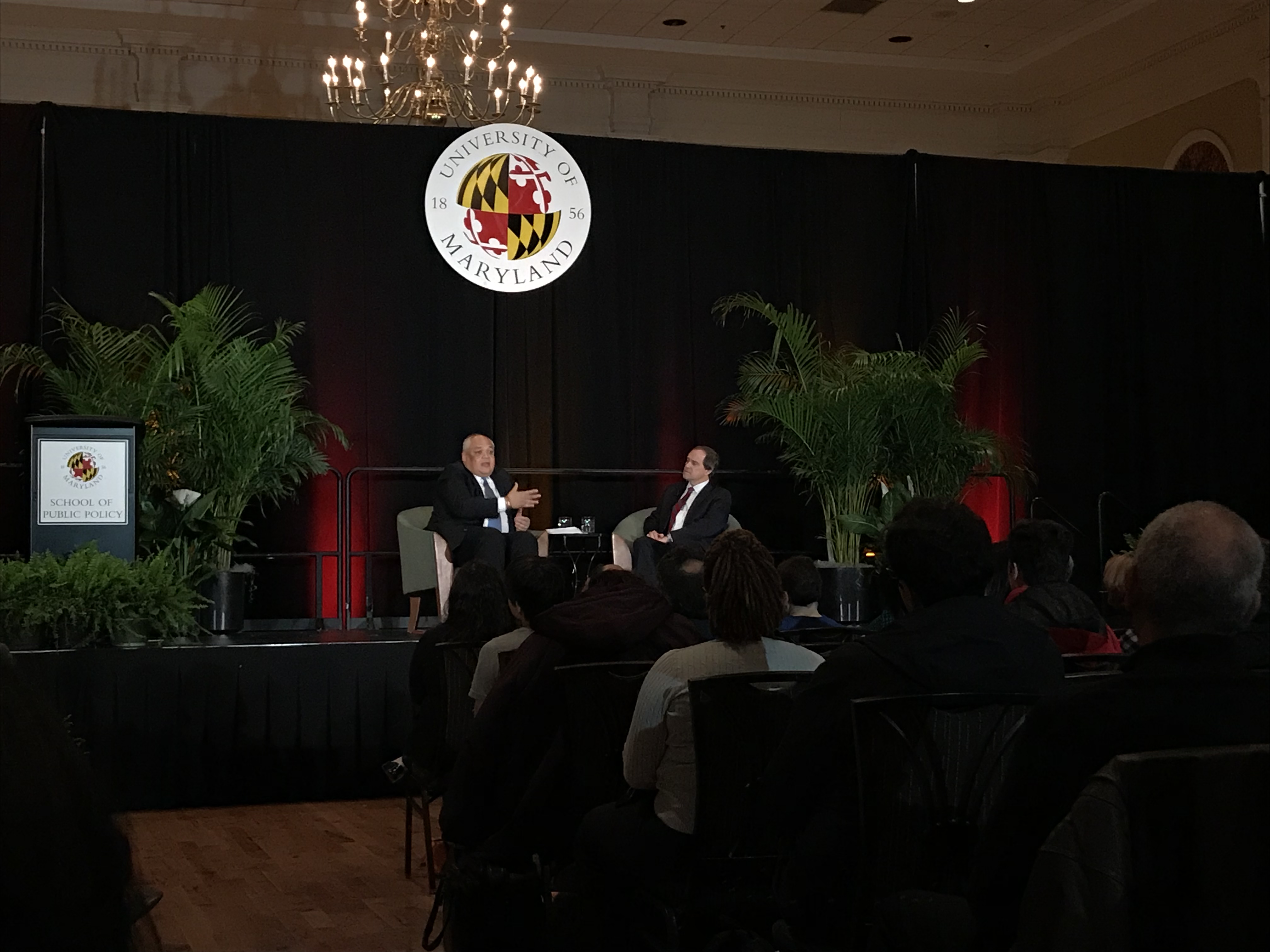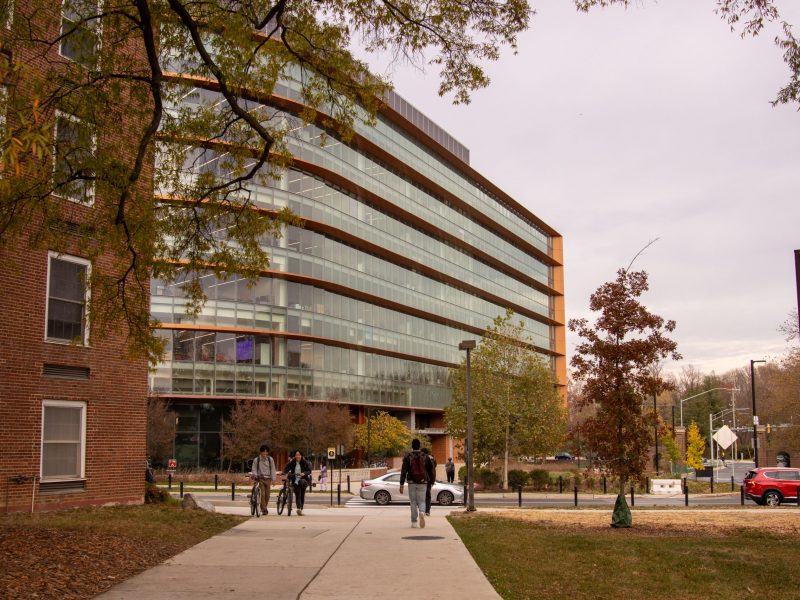By David Jahng
For The Diamondback
During a time of divisive politics, more than 100 students, faculty and other community members at the University of Maryland attended a lecture Tuesday led by Thurgood Marshall Jr.
Marshall, a counselor and expert in public policy, spoke at Stamp Student Union’s Grand Ballroom and discussed the importance of leadership and civic engagement during a time of deeply dividing politics and tribal groupthink.
“I can’t think of a better person to talk about these issues,” said university President Wallace Loh. “He is the son of the supreme court justice that desegregated the university and desegregated public schools in the whole country.”
Marshall is the son Thurgood Marshall Sr., who argued Supreme Court cases such as Brown v. Board of Education, which led to the desegregation of public schools.
Loh opened the discussion with a statement criticizing political bigotry, calling for “education of the heart” in efforts to nurture civic values. Robert Orr, the dean of the university’s public policy school, moderated the discussion.
During the event, hosted by the Norman and Florence Brody Family Foundation Public Policy Forum, Marshall spoke about the importance of diversity and how it has given America a competitive advantage around the globe.
“The fabric of our country has always recognized and honored the diversity of our collective culture,” he said.
Marshall also urged those who hold positions in government to be more engaging, respectful and active listeners when it comes to policy, and reach across partisan divides.
Marshall said he wanted this event to be a conversation between himself and listeners, as he engaged in a Q-and-A session with various members of the audience.
Junior Nathan Schachter said he was excited this event connected to much of what he’s been discussing in his courses. Schachter is also a member of the Brody Forum student board.
“The importance of bridging is something that as a policy major we speak about in classes,”the public policy major said. “It was good to be able to hear a professional’s personal experience and learn from that.”
Maalik Nickerson, a public policy graduate student, said he was inspired by Marshall’s influence, as well as the influence of policymakers in general.
“He shed light on different small ways in which you can have an impact on building ideological bridges within a legal career,” Nickerson said. “A legal career is very adversarial — people think of it as an easy way to make a lot of money, but being in these spaces with such powerful people presents opportunities to really connect with them on crucial issues to our society.”
Marshall is a partner of Morgan, Lewis & Bockius LLP, an international law firm. In the 1990s, he also served as a member of the White House senior staff under the Clinton administration.
Marshall also commented on the Trump administration, adding that he wished the president “would use his position and his leadership skills to try to bring us together, rather than tear us apart.”
“I do think there are aspects of his campaign and his governance style that have unfortunately appealed to divisive interests in the country,” he said. “I’m frankly not sure how much of that is his personal view, or his desire to maintain political support, and I find that a little disturbing as well.”



